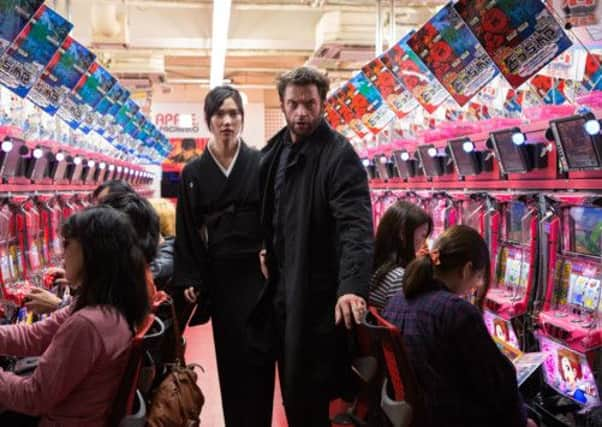Review: The Wolverine (12A)


Not so. The Wolverine does indeed star Hugh Jackman and is linked throughout to the X-Men franchise that spawned it.
However, under the stewardship of James Mangold it focuses less on the sort of action adored by Marvel nerds and more on the character of the man who became a mutant.
Advertisement
Hide AdAdvertisement
Hide AdIn many ways Mangold’s entry in the Marvel series is a stand-alone film. It can be viewed as a companion piece to earlier adventures but it lacks – perhaps deliberately – any real links to Messrs Xavier, Lensherr and Co.
What’s more the film is set almost totally in Japan, thus allowing Mangold to explore the culture and traditions of a country that have given us the tattooed gangsters known as Yakuza and the black-clad assassins, the Ninja.
In amidst all of this stands Hugh Jackman as Logan, aka Wolverine, a man whose bone structure is made of metal. Jackman has to hold and carry the film as he returns to Japan to honour a request by an old man whose life he saved more than 60 years before.
Mangold tinkers with the “approved” style of the series, throwing in a wide range of punch-ups, gunfights, kidnappings, samurai slashings and fast-kicking choreography that inevitably culminates in teeth-rattling violence.
Advertisement
Hide AdAdvertisement
Hide AdHe also rations the mutants that have been scattered liberally through previous films.
There are few of them, and only one real villain, an acid-spitting monster named Viper.
As a connection to the past Famke Janssen returns as Jean Grey, Logan’s dead lover, whispering advice to her man in a series of fleeting flashbacks, dreams and hallucinations.
But Mangold has the courage to make a much smarter film than anyone might have imagined.
Advertisement
Hide AdAdvertisement
Hide AdHe even throws in a reference to Kurosawa’s Throne of Blood – a welcome nod to the master of Japanese samurai epics and something that is, perhaps surprisingly, not at all out of place in this chunky blend of fantasy and the search for eternal life.
Devotees are advised to stay for the end credits, which contain a surprise.